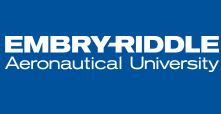
Volume
18
Issue
1
Abstract
Critics of higher education often criticize the chasm separating esoteric academic theory from the pragmatic knowledge required of students after graduation. Service-learning is presented as a catalyst for intrinsically motivating students to master course concepts. In service-learning, students collaborate with each other and with external stakeholders to fuse classroom theory with practical application in order to address real-world problems. Typological and historical overviews of service-learning are provided with special emphasis on how the systemic incorporation of service-learning throughout a degree program may increase student persistence by harmonizing academic processes with generational values. The use of service-learning in flight safety courses at Embry-Riddle Aeronautical University has not only improved safety at the campus and in the surrounding aviation community, it has enhanced the learning of technical concepts in students while greatly improving their soft skills.
Scholarly Commons Citation
Cortes, A. I.
(2008).
Learning Theoretical Concepts through Community Problem Solving: Service-Learning in Flight Safety Courses.
Journal of Aviation/Aerospace Education & Research, 18(1).
DOI: https://doi.org/10.15394/jaaer.2008.1390

